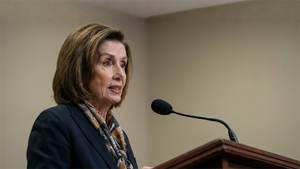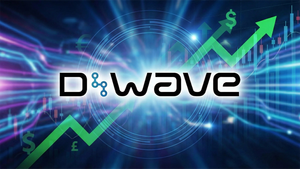An index-tracking ETF that provides exposure to companies that comprise the aerospace & defense industries
First Trust Advisors L.P. (“First Trust”), a leading exchange-traded fund (“ETF”) provider and asset manager, announced today that it has launched a new ETF, the First Trust Indxx Aerospace & Defense ETF (NYSE Arca: MISL) (the “fund”). The fund seeks investment results that correspond generally to the price and yield (before the fund’s fees and expenses) of an index called the Indxx US Aerospace & Defense Index (the “index”).
“The aerospace and defense industry has been on the forefront of innovation for decades, providing aircraft, ships, spacecraft, weapon systems, and defense equipment to both the government and private enterprises,” said Ryan Issakainen, CFA, Senior Vice President, and ETF Strategist at First Trust. “As technological advancements accelerate, we believe there are strong incentives for continued investments to be made in each of these areas, and we are excited to offer MISL as a way to gain exposure to stocks that may benefit from the growth and maturity of this industry,” Issakainen said. The fund provides exposure to U.S. companies that derive at least 50% of their revenues from business activities associated with advanced and traditional aerospace and defense sub-themes including: hypersonic; directed energy; space technologies; unmanned aerial vehicle/advanced air mobility; and autonomous, cybersecurity, C5ISR solutions.
“The US aerospace and defense industry is ripe with opportunity, as innovation and technological solutions are advancing rapidly across the entire sector,” said Rahul Sen Sharma, Managing Partner at Indxx, Inc., the index provider. “This index is unique in that it targets not only traditional aerospace and defense companies but also those that are on the cutting edge of innovation and have the potential to transform the entire industry on a global basis. We are excited to once again work with First Trust Advisors to offer access to this high growth and highly innovative sector.”
For more information about First Trust, please contact Ryan Issakainen at (630) 765-8689 or RIssakainen@FTAdvisors.com.
About First Trust
First Trust is a federally registered investment advisor and serves as the fund’s investment advisor. First Trust and its affiliate First Trust Portfolios L.P. (“FTP”), a FINRA registered broker-dealer, are privately held companies that provide a variety of investment services. First Trust has collective assets under management or supervision of approximately $178 billion as of September 30, 2022 through unit investment trusts, exchange-traded funds, closed-end funds, mutual funds and separate managed accounts. First Trust is the supervisor of the First Trust unit investment trusts, while FTP is the sponsor. FTP is also a distributor of mutual fund shares and exchange-traded fund creation units. First Trust and FTP are based in Wheaton, Illinois. For more information, visit http://www.ftportfolios.com.
You should consider the fund’s investment objectives, risks, and charges and expenses carefully before investing. Contact First Trust Portfolios L.P. at 1-800-621-1675 or visit www.ftportfolios.com to obtain a prospectus or summary prospectus which contains this and other information about the fund. The prospectus or summary prospectus should be read carefully before investing.
Risk Considerations
You could lose money by investing in a fund. An investment in a fund is not a deposit of a bank and is not insured or guaranteed. There can be no assurance that a fund's objective(s) will be achieved. Investors buying or selling shares on the secondary market may incur customary brokerage commissions. Please refer to each fund's prospectus and SAI for additional details on a fund's risks. The order of the below risk factors does not indicate the significance of any particular risk factor.
The companies involved in the aerospace and defense industries are subject to fierce competition, consolidation, adverse political and government developments, substantial research and development costs, limited numbers of potential customers and excess capacity and spending trends. Their products and services may be subject to rapid obsolescence.
Unlike mutual funds, shares of the fund may only be redeemed directly from a fund by authorized participants in very large creation/redemption units. If a fund’s authorized participants are unable to proceed with creation/redemption orders and no other authorized participant is able to step forward to create or redeem, fund shares may trade at a premium or discount to a fund’s net asset value and possibly face delisting and the bid/ask spread may widen.
A fund is susceptible to operational risks through breaches in cyber security. Such events could cause a fund to incur regulatory penalties, reputational damage, additional compliance costs associated with corrective measures and/or financial loss.
Equity securities may decline significantly in price over short or extended periods of time, and such declines may occur in the equity market as a whole, or they may occur in only a particular country, company, industry or sector of the market.
An index fund will be concentrated in an industry or a group of industries to the extent that the index is so concentrated. A fund with significant exposure to a single asset class, or the securities of issuers within the same country, state, region, industry, or sector may have its value more affected by an adverse economic, business or political development than a broadly diversified fund.
A fund may be a constituent of one or more indices or models which could greatly affect a fund’s trading activity, size and volatility.
There is no assurance that the index provider or its agents will compile or maintain the index accurately. Losses or costs associated with any index provider errors generally will be borne by a fund and its shareholders.
Industrials and producer durables companies are subject to certain risks, including the general state of the economy, intense competition, consolidation, domestic and international politics, excess capacity and consumer demand and spending trends. They may also be significantly affected by overall capital spending levels, economic cycles, technical obsolescence, delays in modernization, labor relations, and government regulations.
Large capitalization companies may grow at a slower rate than the overall market.
Market risk is the risk that a particular security or shares of a fund in general may fall in value. Securities are subject to market fluctuations caused by such factors as general economic conditions, political events, regulatory or market developments, changes in interest rates and perceived trends in securities prices. Shares of a fund could decline in value or underperform other investments as a result. In addition, local, regional or global events such as war, acts of terrorism, spread of infectious disease or other public health issues, recessions, or other events could have significant negative impact on a fund. In February 2022, Russia invaded Ukraine which has caused and could continue to cause significant market disruptions and volatility within the markets in Russia, Europe, and the United States. The hostilities and sanctions resulting from those hostilities could have a significant impact on certain fund investments as well as fund performance. The COVID-19 global pandemic and the ensuing policies enacted by governments and central banks have caused and may continue to cause significant volatility and uncertainty in global financial markets. While the U.S. has resumed “reasonably” normal business activity, many countries continue to impose lockdown measures. Additionally, there is no guarantee that vaccines will be effective against emerging variants of the disease.
A fund faces numerous market trading risks, including the potential lack of an active market for fund shares due to a limited number of market makers. Decisions by market makers or authorized participants to reduce their role or step away in times of market stress could inhibit the effectiveness of the arbitrage process in maintaining the relationship between the underlying values of a fund’s portfolio securities and a fund’s market price.
Large inflows and outflows may impact a new fund’s market exposure for limited periods of time.
An index fund’s return may not match the return of the index for a number of reasons including operating expenses, costs of buying and selling securities to reflect changes in the index, and the fact that a fund’s portfolio holdings may not exactly replicate the index.
A fund classified as “non-diversified” may invest a relatively high percentage of its assets in a limited number of issuers. As a result, a fund may be more susceptible to a single adverse economic or regulatory occurrence affecting one or more of these issuers, experience increased volatility and be highly concentrated in certain issuers.
A fund and a fund’s advisor may seek to reduce various operational risks through controls and procedures, but it is not possible to completely protect against such risks. The fund also relies on third parties for a range of services, including custody, and any delay or failure related to those services may affect the fund’s ability to meet its objective.
A fund that invests in securities included in or representative of an index will hold those securities regardless of investment merit and the fund generally will not take defensive positions in declining markets.
The market price of a fund’s shares will generally fluctuate in accordance with changes in the fund’s net asset value (“NAV”) as well as the relative supply of and demand for shares on the exchange, and a fund’s investment advisor cannot predict whether shares will trade below, at or above their NAV.
Securities of small- and mid-capitalization companies may experience greater price volatility and be less liquid than larger, more established companies.
Trading on an exchange may be halted due to market conditions or other reasons. There can be no assurance that a fund’s requirements to maintain the exchange listing will continue to be met or be unchanged.
First Trust Advisors L.P. is the adviser to the fund. First Trust Advisors L.P. is an affiliate of First Trust Portfolios L.P., the fund’s distributor.
The information presented is not intended to constitute an investment recommendation for, or advice to, any specific person. By providing this information, First Trust is not undertaking to give advice in any fiduciary capacity within the meaning of ERISA, the Internal Revenue Code or any other regulatory framework. Financial professionals are responsible for evaluating investment risks independently and for exercising independent judgment in determining whether investments are appropriate for their clients.
Indxx and Indxx US Aerospace & Defense Index (“Index”) are trademarks of Indxx, Inc. (“Indxx”) and have been licensed for use for certain purposes by First Trust. The Fund is not sponsored, endorsed, sold or promoted by Indxx and Indxx makes no representation regarding the advisability of trading in such product. The Index is determined, composed and calculated by Indxx without regard to First Trust or the Fund.
Hypersonic: Of or relating to speed of five or more times the speed of sound.
C5ISR: Command, control, computers, communications, cyber, intelligence, surveillance, and reconnaissance.
View source version on businesswire.com: https://www.businesswire.com/news/home/20221026005571/en/
Contacts
Ryan Issakainen
First Trust
(630) 765-8689
RIssakainen@FTAdvisors.com





